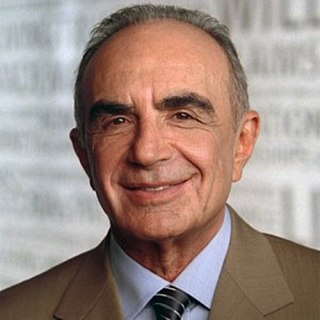A Quote by Bill Nye
Evolution is the fundamental idea in all of life science, in all of biology. The key to our being here now is time, 4.54 billion (Earth) years of time. Nuclear fission wasn't discovered until long after Charles Darwin and Alfred Russell Wallace published their original books and papers, for example. Our ability to measure atomic masses wasn't developed until long after their deaths. These features of nature enabled us to reckon the age of the Earth and compare it with speciation rates here.
Quote Topics
Ability
After
Age
Atomic
Being
Billion
Biology
Books
Charles
Compare
Darwin
Deaths
Developed
Discovered
Earth
Evolution
Example
Features
Fission
For Example
Fundamental
Idea
Key
Life
Life Science
Long
Masses
Measure
Nature
Now
Nuclear
Nuclear Fission
Original
Our
Papers
Published
Rates
Reckon
Russell
Science
Speciation
Time
Until
Us
Years
Related Quotes
We on Earth have just awakened to the great oceans of space and time from which we have emerged. We are the legacy of 15 billion years of cosmic evolution. We have a choice: We can enhance life and come to know the universe that made us, or we can squander our 15 billion-year heritage in meaningless self-destruction. What happens in the first second of the next cosmic year depends on what we do, here and now, with our intelligence and our knowledge of the cosmos.
The Hindu religion is the only one of the world’s great faiths dedicated to the idea that the Cosmos itself undergoes an immense, indeed an infinite, number of deaths and rebirths. It is the only religion in which the time scales correspond, no doubt by accident, to those of modern scientific cosmology. Its cycles run from our ordinary day and night to a day and night of Brahma, 8.64 billion years long, longer than the age of the Earth or the Sun and about half the time since the Big Bang.
Today, nothing is unusual about a scientific discovery's being followed soon after by a technical application: The discovery of electrons led to electronics; fission led to nuclear energy. But before the 1880's, science played almost no role in the advances of technology. For example, James Watt developed the first efficient steam engine long before science established the equivalence between mechanical heat and energy.
Until we stop ourselves or, more often, have been stopped, we hope to put certain of life's events "behind us" and get on with our living. After we stop we see that certain of life's issues will be with us for as long as we live. We will pass through them again and again, each time with a new story, each time with a greater understanding, until they become indistinguishable from our blessings and our wisdom. It's the way life teaches us to live.
Alfred Russel Wallace, the codiscoverer of the theory of natural selection. Following their twin announcements of the theory in 1858, both Darwin and Wallace struggled like Laocoöns with the serpentine problem of human evolution and its encoiling difficulty of consciousness. But where Darwin clouded the problem with his own naivete, seeing only continuity in evolution, Wallace could not do so.
It's important that we attempt to extend life beyond Earth now. It is the first time in the four billion-year history of Earth that it's been possible, and that window could be open for a long time - hopefully it is - or it could be open for a short time. We should err on the side of caution and do something now.
Darwin's theory of evolution is a framework by which we understand the diversity of life on Earth. But there is no equation sitting there in Darwin's 'Origin of Species' that you apply and say, 'What is this species going to look like in 100 years or 1,000 years?' Biology isn't there yet with that kind of predictive precision.
Let me put it in a rather larger picture framework. Let's go to the longest time frame, the time frame of the life of our sun. As a star, our sun is about halfway through its life cycle. In the long run, we only have a couple of billion more years likely that we can inhabit this planet. By that time, we're going to have to be out of here before our sun dies. Now, I don't think we need to wait that long, and we certainly shouldn't wait that long. At the moment, we are not on a sustainable path.
Our planet has been around only for four and a half billion years. Let's imagine a planet that has life on it such as life is on Earth and it's seven billion years old. Let's say that planet evolved intelligence. Well, that intelligence would be way more advanced than what we call intelligence here on Earth. How long has intelligence been around on Earth as we've come to define it?
Science is being daily more and more personified and anthromorphized into a god. By and by they will say that science took our nature upon him, and sent down his only begotten son, Charles Darwin, or Huxley, into the world so that those who believe in him, &c.; and they will burn people for saying that science, after all, is only an expression for our ignorance of our own ignorance.
Our time on earth and our energy, intelligence, opportunities, relationships, and resources are all gifts from God that he has entrusted to our care and management. We are stewards of whatever God gives us. This concept of stewardship begins with the recognition that God is the owner of everything and everyone on earth. ... We never actually own anything during our brief stay on earth. God just loans the earth to us while we're here. It was God's property before you arrived, and God will loan it to someone else after you die.

































